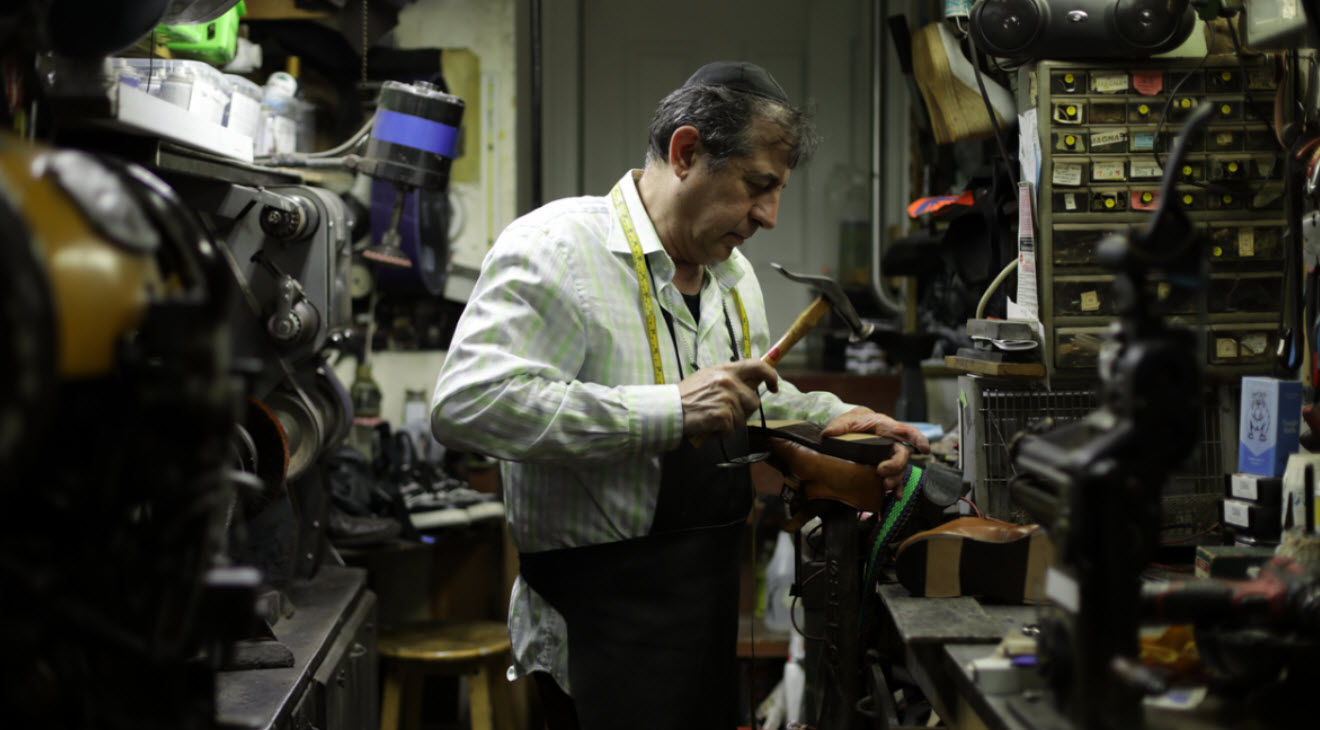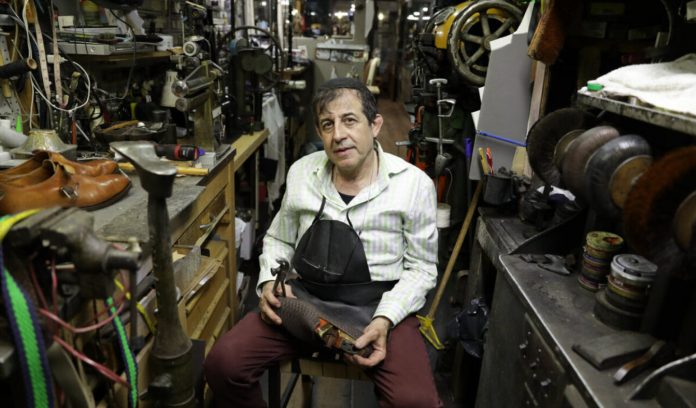Shoemaker Uriel Gurgov immigrated to the United States on Jan. 21, 1993. He was born in 1962 in Bukhara, Uzbekistan—once an ancient trading city situated along the Silk Road in Central Asia. Uriel embarked on a grueling journey out of his hometown in the late 1990s, during the time that former Soviet leader, Mikhail Gorbachev was in power, and emigration among Bukharan Jews was prevalent.
Historically, Jews in Uzbekistan have always been religiously targeted. First, by the Sunni Muslims of the Bukhara Emirate during the late 16th century when they were forbidden from buying horses and forced to wear special clothing to distinguish themselves from Sunni Muslims. The religious persecution continued throughout Russian and Soviet rule. Finally, in the late 1920s, synagogues were permanently shut down and Jews were denied work in their traditional trades. Emigration was thus seen as a last attempt to flee persecution and discrimination in their homeland.
Having no relatives in the United States to support an affidavit application on his behalf, Gurgov was forced to cross over through Moscow. However, his journey was anything but simple and he met with several setbacks. Before his journey even began, he was apprehended in his hometown of Bukhara, Uzbekistan. Gurgov was falsely accused of buying a stolen television.
“I said, first of all, I don’t buy stuff from thieves. Also, from January to March, I was in Israel. How can I buy this?” Gurgov said. The crime allegedly occurred in February, when he was out of the country.
Searching for a Way Out
He was taken to jail and beaten in an attempt to make him confess to the alleged crime. When that proved useless, Gurgov was put on trial in front of one of the biggest judges in Bukhara. He went on to explain in the interview that the country’s government was very corrupt. His only way out of being condemned to a life in jail was to offer monetary payment to the judges and police.
“If you just bribe one, they will tell—so you have to have so much money to give each one now,” Gurgov said.
Many people encouraged him to escape Uzbekistan with his family. The government was well known for using Jews as a scapegoat for other people’s crimes. “Somebody stole this? They put it on you. Somebody hit somebody? They blame you. What kind of life is that?” he said.
This experience drove Gurgov to save money and prepare his family’s paperwork to flee Bukhara together. “But I didn’t tell anybody because everybody, everywhere, you have rats,” Gurgov said.
Before the family departed Bukhara, they paid a short visit to the cemetery to say farewell to their forefathers. Along the way, they paid out a lot of money to border police, guards, and airport security. Eventually, they arrived in Moscow, and from there, they flew to America in search of a new life.
New Shop, New Direction

For three centuries, highly skilled craftsmen called “ustad” practiced traditional crafts in Central Asia and beyond. Some of this included jewelry-making, armory, carpet weaving, and shoemaking. Bukhara, Uzbekistan, was considered one of the major handicraft centers, often visited by wealthy merchants along the Silk Road. Skilled craftsmen would often take in apprentices who would learn their trade. This is also how Gurgov learned the craft of shoemaking. He explained that his father would often take him to many crafting hubs where he would be taught various skills in exchange for free work. These skills helped Gurgov kickstart his shoemaking business after moving to the United States.
Gurgov purchased his shoe shop in 1994, less than a year after arriving in the United States. With the help of generous friends and a bank loan of $15,000, he started a shoemaking business and has since been working there. His apartment is on the next block. “And what else do you need? I have a family, a wife, children, and grandchildren. I appreciate it, I’m satisfied.”
Shoemaker Gurgov considers shoemaking a real craft, one that requires the craftsman to really know his customer’s problem in order to help them accordingly. He places great importance on wearing the right shoes. “You can have a hundred shoes but none of them feel right. If you wear one shoe and you’re not tired of it, then that’s a good shoe.” He said many people wear the wrong types of shoes. They develop pain and fatigue, leading to serious health problems resulting in thousands of dollars in medical bills. He believes that making even a simple change in your footwear is enough to make a significant difference to your health. For instance, slightly changing the shoe size or purchasing one with good arch support can make a difference.
Today, he crafts sturdy, custom shoes for regular people and celebrities alike. Some of his past customers include Britney Spears and Patrick Dempsey. TV shows such as Boardwalk Empire and Gossip Girl have also commissioned Gurgov to design the cast’s shoes. He also carries out shoe, watch, and jewelry repairs.
Despite encountering many setbacks and enduring much suffering, Gurgov remains grateful and satisfied with life. He believes you can’t always be a winner and that sometimes losing is better as it helps one grow and appreciate things more. As Gurgov would say, “Today you give up, tomorrow you gain.”
This article was originally published in American Essence magazine.
credit to: theepochtimes.com










